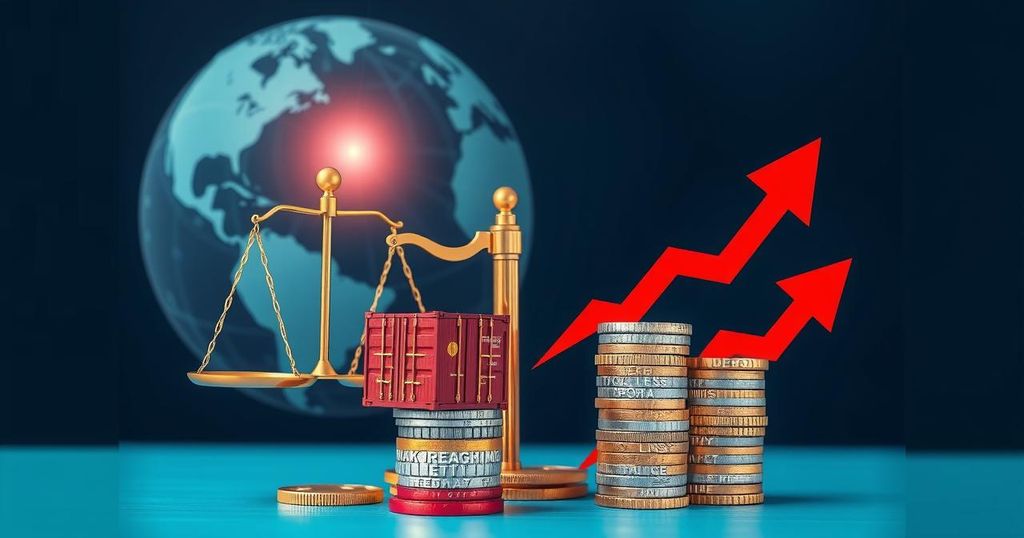Indian-American Lawmakers Denounce Trump’s Reciprocal Tariffs as Reckless

Indian-American lawmakers criticized Trump’s 26% reciprocal tariffs on India as reckless, urging dialogue to mitigate economic fallout. They assert these tariffs negatively impact American families and threaten international trade relations, calling for a reevaluation of such policies to prevent further economic strain. Concerns include rising consumer prices and weakened US-India economic partnerships.
Indian-American lawmakers have condemned President Trump’s reciprocal tariffs, labeling them as “reckless and self-destructive.” They urged both nations to engage in dialogue to resolve these economic conflicts. The announcement of a 26% tariff on India follows Trump’s view that India’s charges necessitate a reprisal. This move is part of a broader strategy involving 60 countries to counter global tariff disparities, potentially affecting Indian competitiveness.
Congressman Raja Krishnamoorthi highlighted the negative impact of these tariffs on working families, framing them as a tax burden to benefit wealthier Americans. He described the tariffs as harmful to consumers and detrimental to America’s global standing. Krishnamoorthi called for an end to these policies, asserting they do not enhance national or economic security.
Congressman Ro Khanna emphasized the chaotic way the tariffs were implemented, warning of rising costs for everyday goods, and expressing concern about escalating inflation and potential recession. He criticized Trump’s tariffs for causing uncertainty in investment decisions and adversely affecting the stock market.
Dr. Ami Bera echoed these criticisms, stressing that the tariffs would ultimately burden American consumers rather than generate wealth. Furthermore, Ajay Bhutoria projected significant repercussions for major US and Indian industries, estimating that American households could face increased yearly expenses between $2,500 and $15,000 due to rising prices stemming from these tariffs.
Asia Society Policy Institute’s Wendy Cutler warned that reciprocal tariffs will disrupt relationships with trading partners and harm the US economy. The tariffs reflect an inconsistency in treating allies versus rivals, potentially leading to retaliatory measures and declining economic growth. Cutler highlighted that US partners will seek exemptions, with implications for American global trade relations.
The criticism of Trump’s reciprocal tariffs by Indian-American lawmakers underscores significant concerns regarding their economic ramifications. With rising prices and potential for recession, these tariffs are viewed as detrimental to both US and Indian economies, urging collaborative dialogue instead of confrontational tariffs. The implementation appears to threaten not only bilateral relations but also the broader stability of international economic partnerships.
Original Source: www.ndtv.com







